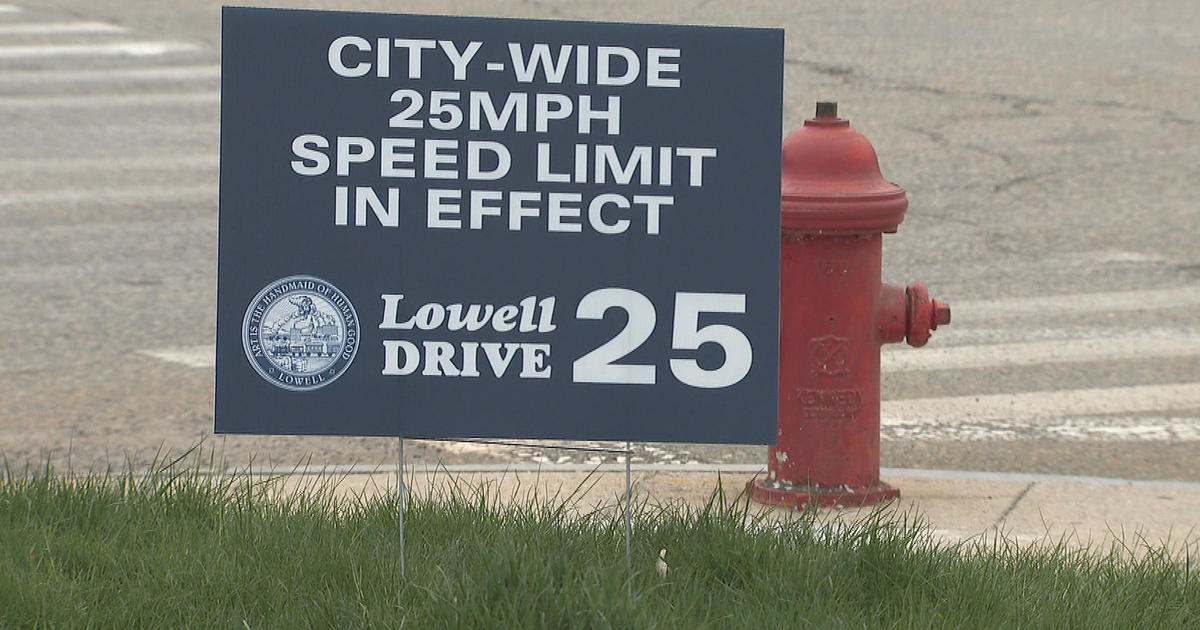Critics Of 'Family Cap' Renew Effort To Repeal Welfare Rule
BOSTON (AP) — After falling short at the finish line last year, supporters of an effort to roll back a Massachusetts rule that denies welfare benefits to children born into families already receiving public assistance are hoping to score an early victory in the new legislative session.
The state Senate on Thursday approved a spending bill that includes language repealing the rule often referred to as a "family cap," or "cap on kids." Many Democrats have long decried it as an outdated and unjust measure that hurts an estimated 9,000 low-income children in Massachusetts.
The language must still be adopted by the House before it goes to Republican Gov. Charlie Baker, who killed the measure with a pocket veto last year though he supports the concept of lifting the cap. The governor, however, has insisted on pairing the elimination of the cap with a set of other welfare reforms.
How The Cap Works
A parent receiving benefits under the program known as Transitional Aid to Families with Dependent Children would normally receive $100 in monthly cash benefits for each child she cares for.
But when a baby is conceived or born while that family is already receiving benefits, there is no additional cash grant for that child, nor is the child eligible for a $300 annual clothing allowance from the state. The rule does not apply to food assistance, a federal program, or to Medicaid benefits.
Why It's Controversial
Massachusetts was among more than 20 U.S. states that enacted family caps in the 1990s amid rising welfare costs and the derogatory narrative that women on welfare — derisively referred to by some critics as "welfare queens" — were conceiving children for the purpose of increasing their monthly benefits.
Backers of the cap say it's not intended to punish parents but to discourage out-of-wedlock births and nudge welfare recipients toward seeking self-sufficiency before bearing more children.
But those who oppose the cap say it is punitive, with babies often the ones being punished. They cite stories of hardship, such as mothers being forced to skimp on diapers and other necessities.
Several other states that established caps have since repealed them, including Republican-leaning Nebraska, Oklahoma and Wyoming.
Where Things Stand
The Democratic-controlled Legislature voted to lift the cap last summer as part of the budget for the state's current fiscal year.
Baker indicated he'd gladly go along with the provision but only if lawmakers also agreed to what he termed "common sense" changes in the aid program, notably allowing for the inclusion of Social Security disability benefits in calculating eligibility. Such a change, the governor said, would align welfare with veterans' benefits and other government assistance programs.
When the Legislature rejected Baker's proposals, he exercised his veto power. Lawmakers had ended formal meetings for the year, so no override vote was possible. The family cap remained in place.
With the start of a new two-year session in January, Senate Democrats signaled that targeting the cap would be among their first priorities. A stand-alone bill to lift the cap was the subject of one of the session's first public hearings. But supporters aren't waiting for that bill to wend its way through the legislative process.
"It is time to take action to repeal this outdated policy, so we value all children equally regardless of the circumstances of their birth," said Sen. Sal DiDomenico, an Everett Democrat, during Thursday's debate.
Language lifting the cap was inserted into the first significant piece of legislation to come before lawmakers in 2019, a $150 million spending bill that includes funds for collective bargaining agreements and to help low-income people heat their homes.
What Happens Next
Since the House earlier passed a version of the spending bill without the family cap provision, it must first agree to accept the language added by the Senate before the entire bill is sent to Baker.
Repeal of the cap also enjoys broad support among Democrats in the House, including Speaker Robert DeLeo.
Baker hasn't said whether he would again use veto power if the measure reaches his desk, but he continues to seek additional reforms in the welfare system, including the changes in the state budget proposal he filed for the next fiscal year.
Any veto may prove symbolic, at best. Unlike last year when lawmakers had already gone home, the current session is just gearing up. And since Democrats hold supermajorities in both chambers, the likelihood of an override would be strong.
(© Copyright 2019 The Associated Press. All Rights Reserved. This material may not be published, broadcast, rewritten or redistributed.)



